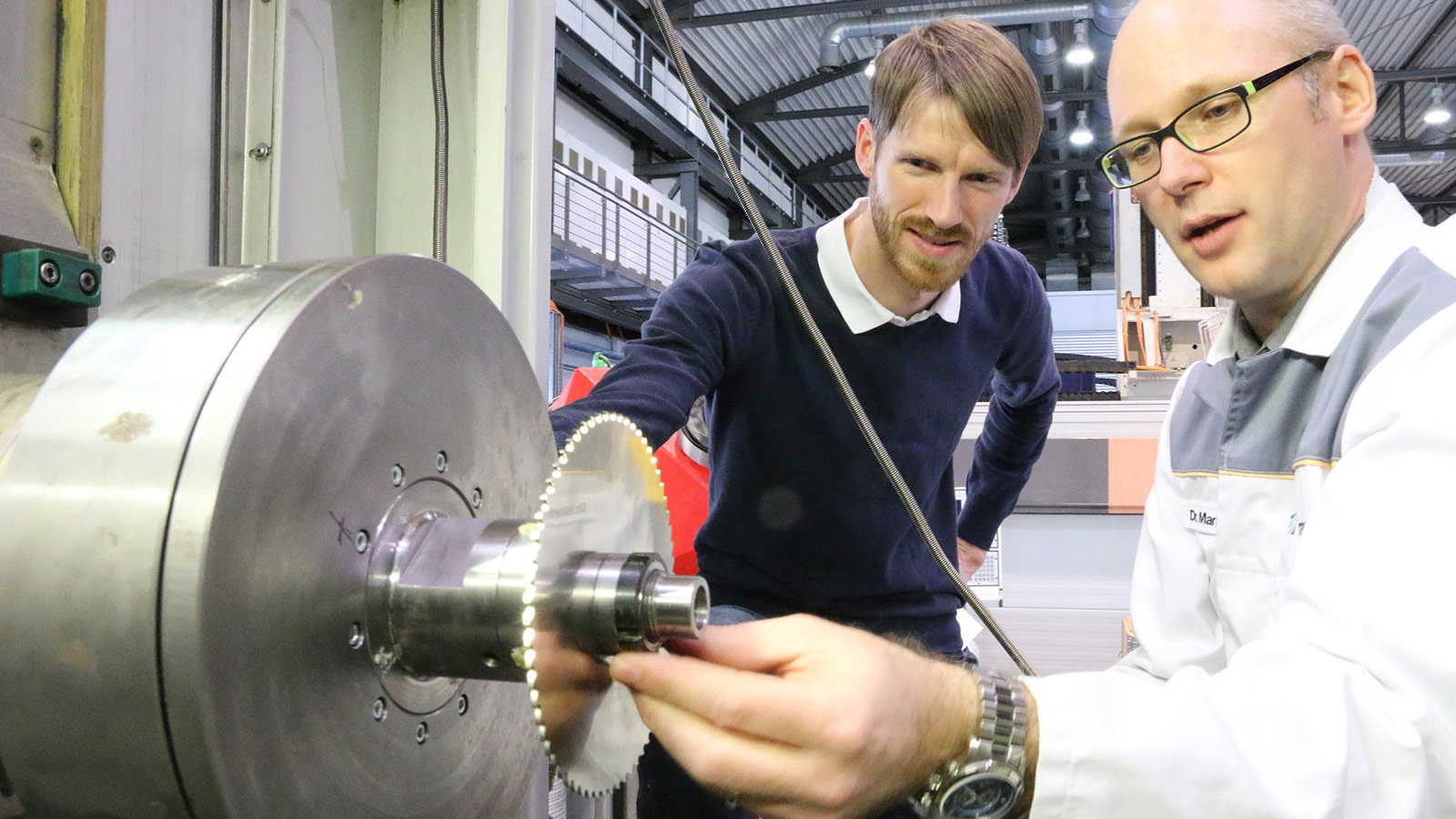Joint sawing of thin tubes
The German Research Foundation funds cooperation between theoretical physicists and engineers in Chemnitz to solve fundamental problems in machining
-

Dr. Andreas Otto (left), from the Chair of Theoretical Physics I – Complex Systems and Nonlinear Dynamics at Chemnitz University of Technology, and Dr. Martin Kolouch, from the Fraunhofer Institute for Machine Tools and Forming Technology, prepare an experiment on cold circular sawing. Photo: Fraunhofer IWU
The fact that physicists from the Chemnitz University of Technology and engineers from the Fraunhofer Institute for Machine Tools and Forming Technology are jointly sawing thin tubes may sound a bit funny. But there is a serious background: the sawing of thin-walled tubes involves fundamental problems – at least if one is aiming for the performance required nowadays and simultaneously for high cutting quality. Similar challenges occur in other machining processes such as milling or deep-hole drilling. The problems occurring are so fundamental that the German Research Foundation (DFG) granted 300,000 euros for a cooperation of theoretical physicists and mechanical engineers to find a solution.
But what is the problem? And why is its solution so difficult? The problem is called “chatter”. It describes machine vibrations, which amplify themselves and eventually lead to bad cutting quality, or even to the destruction of the cutting tool. The basic mechanism of this instability is the regenerative effect. This means that a small, random perturbation leads to a larger perturbation at the next turn of the tool, and so on. To understand this problem and to develop strategies for finding practical solutions requires the modelling expertise existing at the Chemnitz Chair of Theoretical Physics I – Complex Systems and Nonlinear Dynamics. The mathematical modelling is implemented via delay differential equations. But the machining of, for example, thin-walled tubes, raises another fundamental challenge: so-called torsional vibrations cause a time-varying, state-dependent delay. In recent years, the Chemnitz theoretical physicists have developed an internationally renowned expertise in this research area. Thus, together with the practical experience and the measuring methods of the engineers at the Fraunhofer Institute for Machine Tools and Forming Technology, promising optimization strategies can be developed. This project is a typical example for the need of an interdisciplinary cooperation of fundamental and user-oriented researchers, which even occurs in the optimization of already well-established technologies, if one is aiming for the highest performance.
Further information is available from Dr. Andreas Otto, head of the Delay Dynamics Group at the Chair of Theoretical Physics I – Complex Systems and Nonlinear Dynamics, phone +49 371 531 37717, email andreas.otto@physik.tu-chemnitz.de , http://www.tu-chemnitz.de/physik/KSND/eng/ and Dr. Martin Kolouch, Ph.D., research assistant at Fraunhofer Institute for Machine Tools and Forming Technology (IWU), phone +49 371 5397 1362, email martin.kolouch@iwu.fraunhofer.de
Details on the funding of the project by the German Research Foundation (DFG) at: http://gepris.dfg.de/gepris/projekt/321138034
(Author: Prof. Dr. Günter Radons, Chair of Theoretical Physics I – Complex Systems and Nonlinear Dynamics)
(Translation: Alissa Hölzel)
Matthias Fejes
24.01.2018





